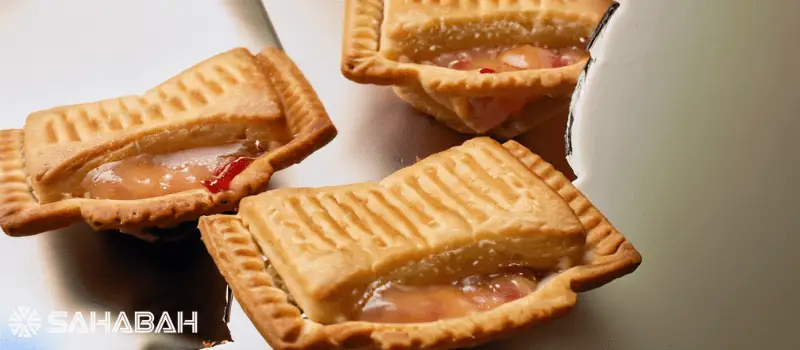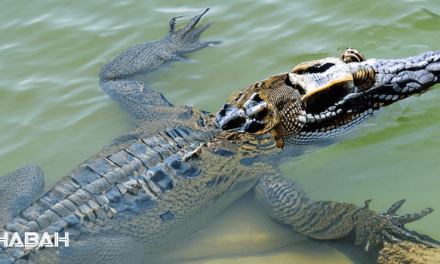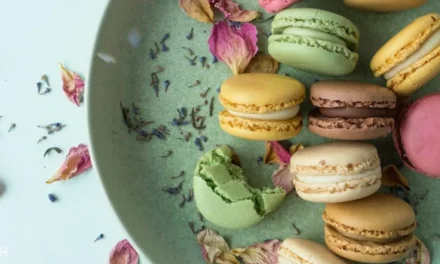In this article, I will provide the latest update on whether Pop Tarts® are halal or haram, addressing the concerns and questions that Muslims may have, ensuring they can make informed choices about their dietary preferences.
What Muslims Need to know
Definition of halal and haram in Islam
In Islam, foods and drinks are categorized as either halal (permissible) or haram (prohibited):
- Halal foods are those that adhere to Islamic dietary guidelines as prescribed in the Quran. This includes:
- Meat from certain slaughtered animals
- Non-alcoholic drinks
- Foods not containing pork or pork by-products
- Haram foods are prohibited under Islamic law. This includes:
- Pork and pork by-products
- Alcohol and intoxicants
- Animals slaughtered in the name of anyone but Allah
“The term halal is often used to describe food and drink that has been prepared according to Islamic dietary guidelines. These guidelines prohibit certain food and drink ingredients and preparation methods.”
Popularity of Pop-Tarts as a convenient breakfast food
Pop-Tarts are a popular pre-packaged toaster pastry sold by the Kellogg Company. Some key points:
- First sold in 1964, they are now sold widely in the United States and other countries
- Known for their convenience as a quick breakfast food or snack
- Come in a variety of flavors including strawberry, brown sugar cinnamon, and chocolate fudge
However, their ingredients may contain animal by-products and alcohol-based ingredients, causing uncertainty about their halal status for Muslim consumers.
Ingredients in Pop-Tarts
Main ingredients (flour, sugar, etc.)
The main ingredients in Pop-Tarts are fairly straightforward including flour, sugar, high fructose corn syrup, and vegetable oils. These basic ingredients are generally considered halal.
Potential animal-derived ingredients (gelatin, natural flavors)
However, Pop-Tarts may contain small amounts of animal-derived ingredients that raise concerns about their halal status:
- Gelatin: Derived from pork or beef sources, gelatin is used as a binding agent in foods.
“Gelatin that comes from pork is forbidden for Muslims to eat.”
- Natural flavors: The exact sources of these proprietary flavor ingredients are rarely disclosed by manufacturers but may come from animal sources.
Variations between flavors and countries
Ingredients can vary between Pop-Tart flavors and country of production:
| Country | Gelatin Source | Certification |
|---|---|---|
| United States | Unknown | Not certified halal |
| Canada | Beef | “Certified as Halal” |
This adds complexity for determining halal compliance.
Opinions on the Halal Status of Pop-Tarts
There are diverging opinions on whether Pop-Tarts are halal: some scholars say if its derived from beef unfrosted strawberry it could be halal
Pop-Tarts certified halal in some countries (Canada)
As mentioned, Pop-Tarts made in Canada are certified halal:
“Pop-Tarts® products made in Canada are certified as Halal.” (Pop-Tarts FAQ)
This indicates the Canadian versions adhere to Islamic dietary regulations.
Scholars declare Pop-Tarts haram due to doubt over ingredients
However, some Muslim scholars consider Pop-Tarts haram because of uncertainty around gelatin sources:
“Our stance is that all foods are halal except those explicitly prohibited by Allah and His Messenger صلى الله عليه وسلم. Based on the ingredient list, we can safely claim Pop Tarts are haram.”
Pop-Tarts avoid pork and alcohol making them “halal-friendly”
Others argue that by avoiding pork and alcohol, Pop-Tarts could be considered “halal-friendly”:
“Pop-Tarts swerve anything pork-based as well as alcohol. This makes them halal-friendly already.”
Need for Muslim consumers to check labels and contact manufacturers
Due to this disagreement, the responsibility falls on Muslim consumers to check labels and ingredients lists, and contact manufacturers for clarification.
Analysis of Pop Tart Ingredients
Examination of gelatin sources and natural flavors
The key animal-derived ingredients in Pop-Tarts are gelatin and natural flavors. An analysis of their halal status is required:
“In order to determine whether Pop Tarts are halal, it’s important to take a closer look at any animal-derived ingredients they may contain.”
Gelatin’s source varies. In the US it is unspecified and may be pork-based. In Canada, gelatin is from beef sources according to their halal certification.
Natural flavors are also ambiguous – the specific sources are proprietary. This makes it impossible to definitively determine if they are halal.
Comparison of US and Canadian Pop-Tart ingredients
The ingredient lists vary between the US and Canada:
- US ingredients are vague, with no halal certification
- Canadian ingredients specify beef gelatin, with halal certification
This indicates that ingredients can be altered to make Pop-Tarts compliant with halal diet restrictions.
Evaluation of how processing aids may affect halal status
Even if ingredients are halal, processing aids used in manufacturing may nullify halal status:
“Processing aids could render the final product as non-Halal.”
More information is needed on equipment and facility cleaning procedures.
Are Pop Tarts Halal FAQs
Pop Tarts are a popular brand of toaster pastries. Whether or not they are considered halal depends on the specific ingredients used in their production. It’s important to read the packaging and check for certifications or specific halal labels.
Do Pop Tarts contain gelatin?
Yes, some flavors of Pop Tarts, especially the frosted varieties, may contain gelatin. Gelatin is derived from either beef or pork, and as a Muslim, it’s important to know the source of the gelatin used in the product.
Are unfrosted Pop Tarts halal or Haram?
Unfrosted Pop Tarts are generally considered to be halal. Flavours like unfrosted brown sugar cinnamon, However, it’s always recommended to check the ingredients list on the packaging to ensure there are no haram ingredients included.
Can Pop Tarts be halal certified?
Yes, it is possible for some Pop Tart flavors to be halal certified. However, not all flavors go through this certification process. Look for specific halal certifications or labels on the packaging to confirm the halal status.
Are Pop Tarts that contain gelatin derived from pork?
It is possible for some Pop Tart flavors that contain gelatin to be derived from either beef or pork. To ensure compliance with your dietary restrictions, it’s important to know the source of the gelatin used, which might be mentioned in the ingredients list or on the packaging.
Are there any vegan Pop Tart options available?
Pop Tarts generally contain ingredients derived from animals, such as gelatin, which is not vegan-friendly. Therefore, most varieties of Pop Tarts are not considered vegan.
Do unfrosted Pop Tarts contain gelatin?
No, most unfrosted Pop-Tarts flavors do not contain gelatin. However, it’s always advisable to read the ingredients list, as flavors may vary.
What about the specific flavors like strawberry, brown sugar cinnamon, and blueberry?
These flavors of Pop Tarts may or may not be halal, depending on the ingredients used. It’s essential to check the packaging for any relevant halal certifications or labels and to read the ingredients list to ensure they meet your dietary requirements.
Can Muslims consume Pop Tarts with halal certifications?
Yes, if it has a halal certification
Conclusion
Summary of evidence on halal status of Pop-Tarts
In summary, there is conflicting evidence regarding the halal compliance of Pop-Tarts:
- Some flavors produced in Canada are certified halal
- But US versions contain ambiguous animal-based ingredients
- Scholars disagree on whether they are halal or haram
Recommendations for Muslim consumers on Pop-Tart consumption
Given the uncertainty, Muslim consumers are advised to:
- Check ingredients lists carefully, avoiding pork and alcohol
- Look for halal certification symbols on packaging
- Contact manufacturers for details on vague ingredients like gelatin
- Consult local scholars if still unsure of halal status
“Muslims are advised to use their best judgement after reviewing the ingredients and consulting reliable resources to determine if they are comfortable consuming Pop Tarts.”
Need for transparency from manufacturers on vague ingredients
To remove ambiguity, food manufacturers should provide more transparency on:
- Sources of gelatin and other animal derived ingredients
- Processing aids used during manufacturing
- Steps taken to ensure halal compliance
Full disclosure would help Muslim consumers make informed choices.





